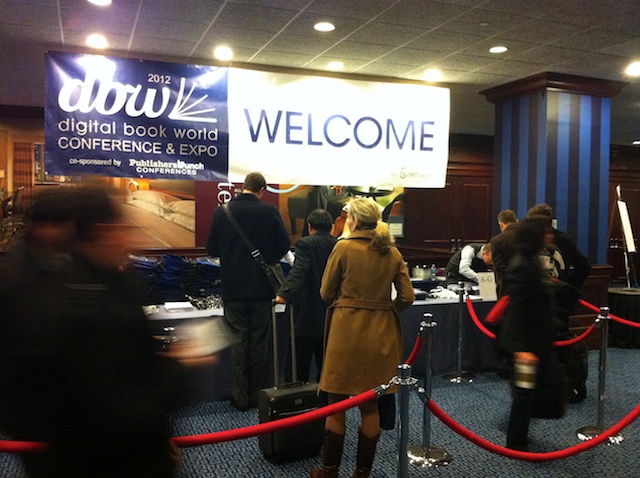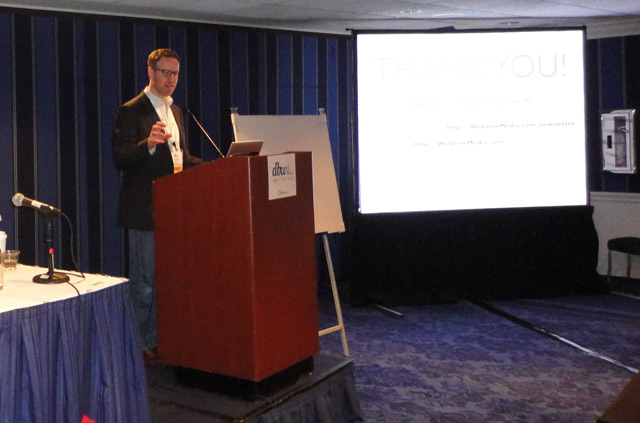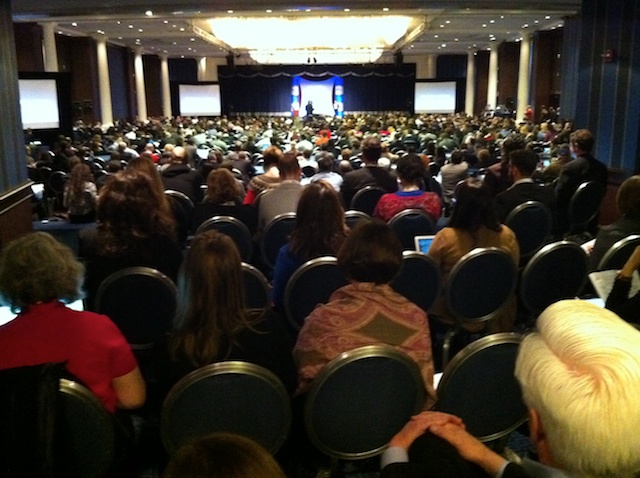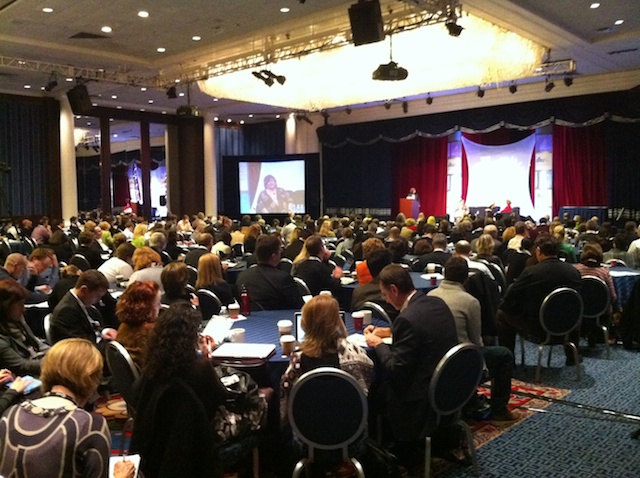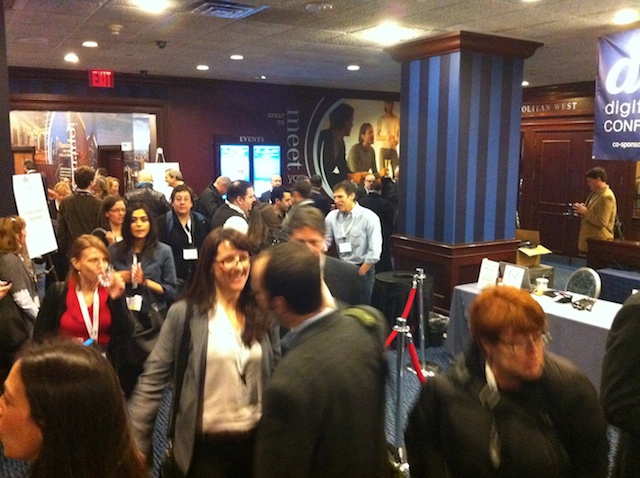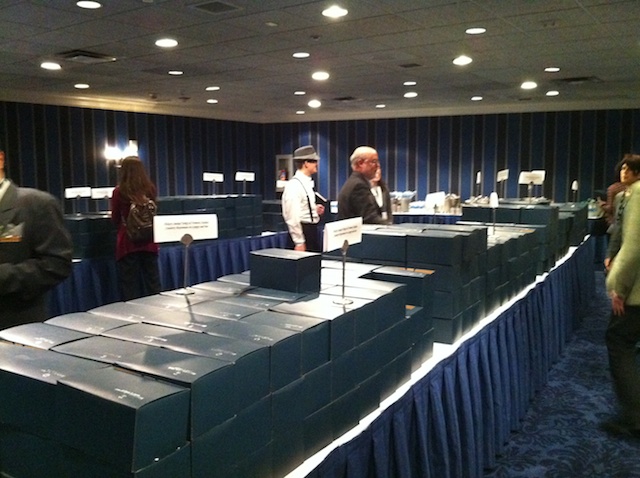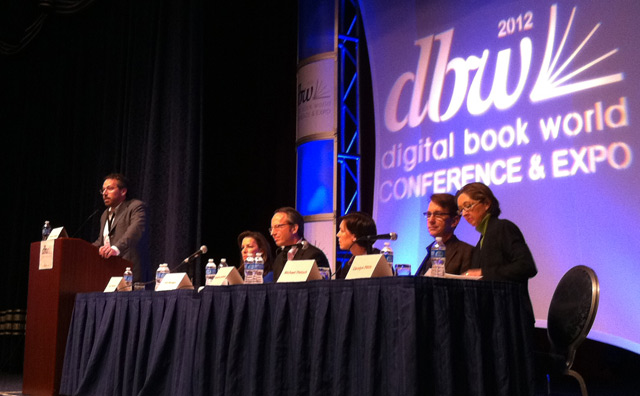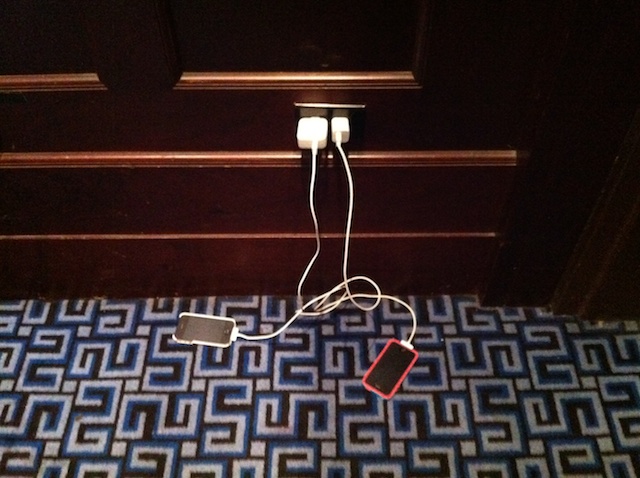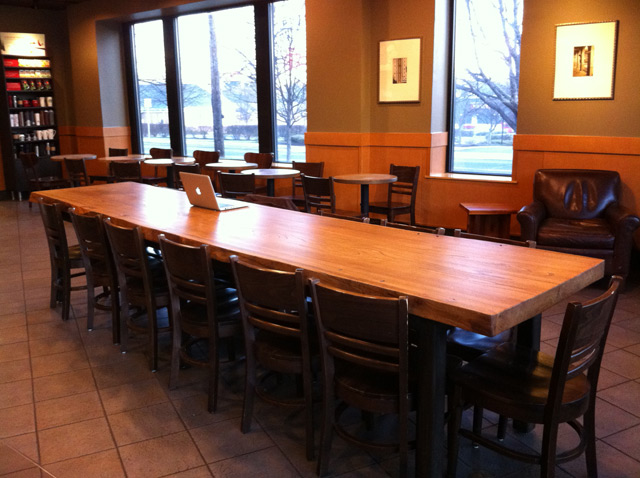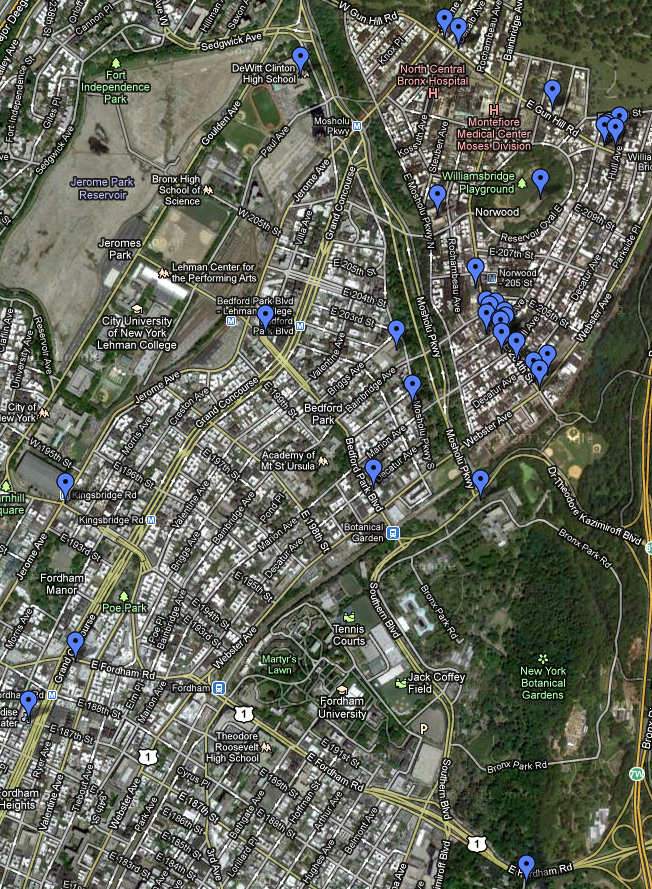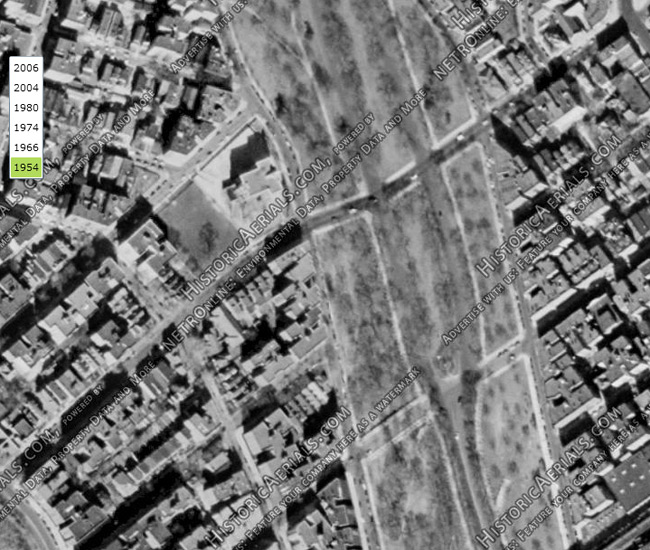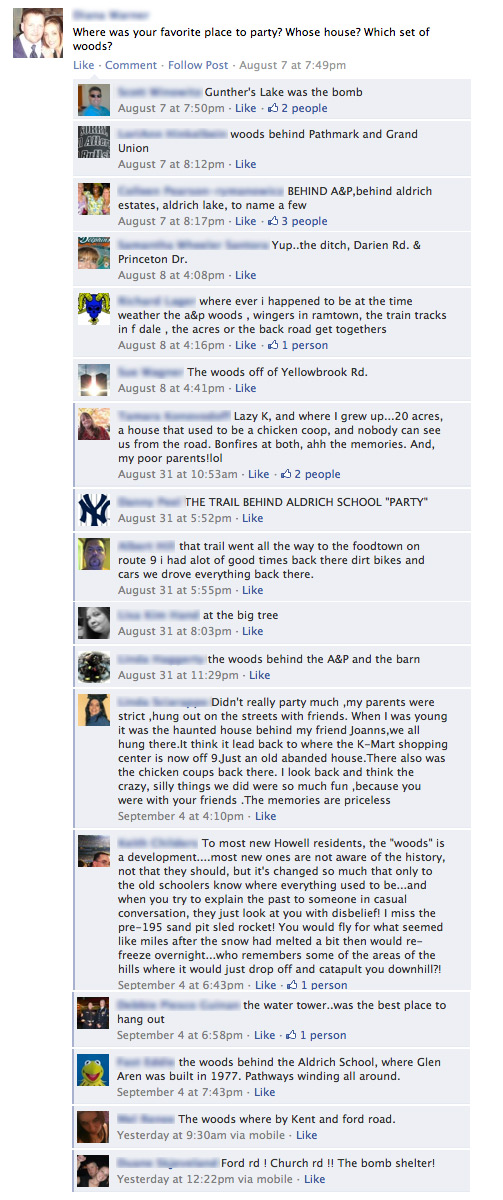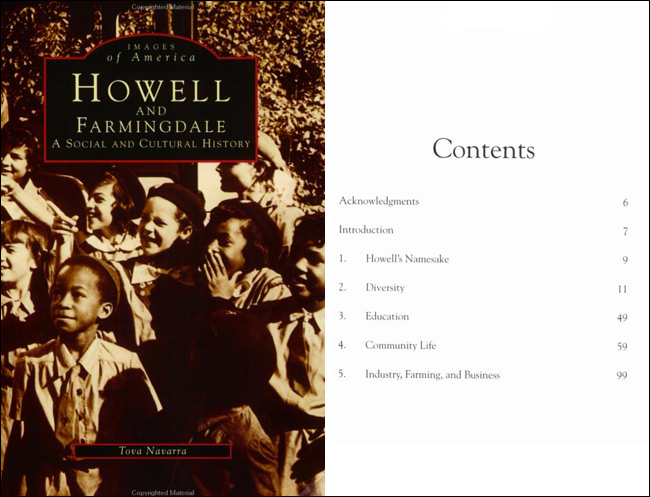Today I want to give you a tour of an unconference: an event where the attendees themselves set the agenda and discuss critical topics. The event we will look at is Book^2 Camp, a series of meetings where those in publishing and the book world gather to discuss the future of each. Through the next 35+ photos, I will take you through the event step-by-step. Let’s get started…
Welcome to Book Camp! When you walk in you see more than 150 people gathered into a meeting space. This event was held at New Work City, a coworking space near Canal Street in Manhattan:
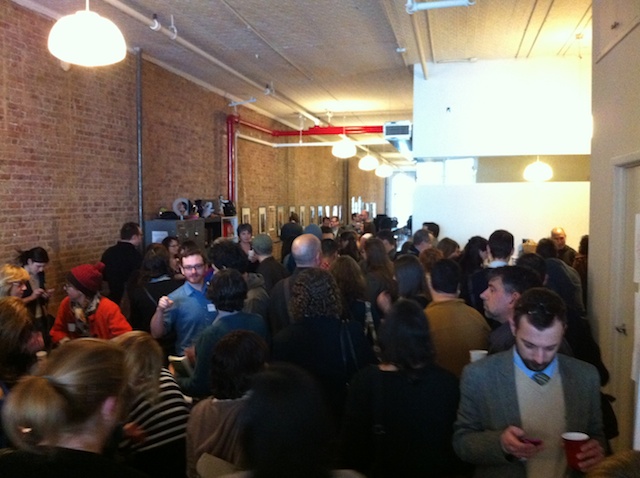
As you will see throughout these images, the tone is very down to earth, community-minded, and DIY. This is where you create your name badge. As with any modern conference today, including your Twitter handle is often recommended:
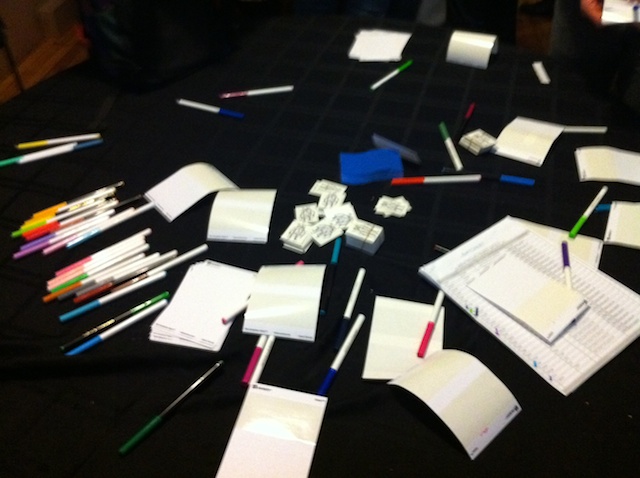
This event was organized by Ami Greko and Chris Kubica (with assistance by Kat Meyer who couldn’t be at the event itself.) Book Camp always starts with Ami standing on furniture, welcoming the crowd, and instructing us on how the day works.
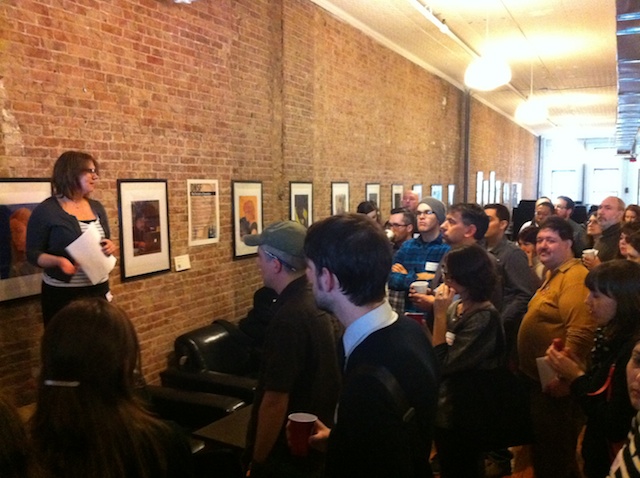
Ami explains that there are two rules to book camp: “The law of 2 feet,” in which you should feel free to move from one session to another if you don’t feel you are getting value out of it; and “Don’t be a d**k, which means a session organizer should not make anyone feel bad for choosing to leave a session.”
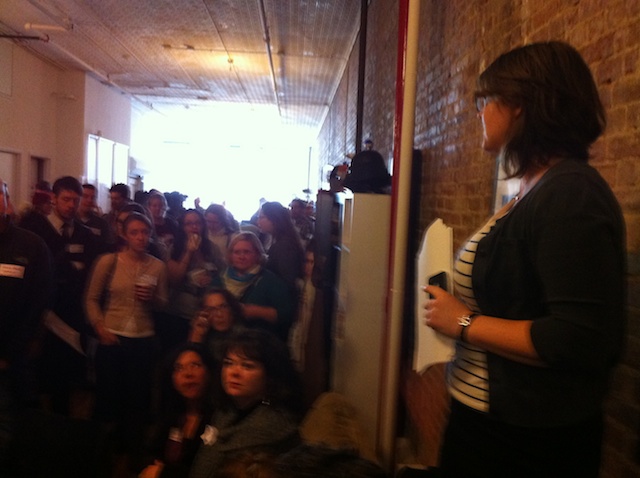
The key thing about an unconference is that there is no set agenda. This is the schedule when you arrive: nothing but empty time slots and room numbers.
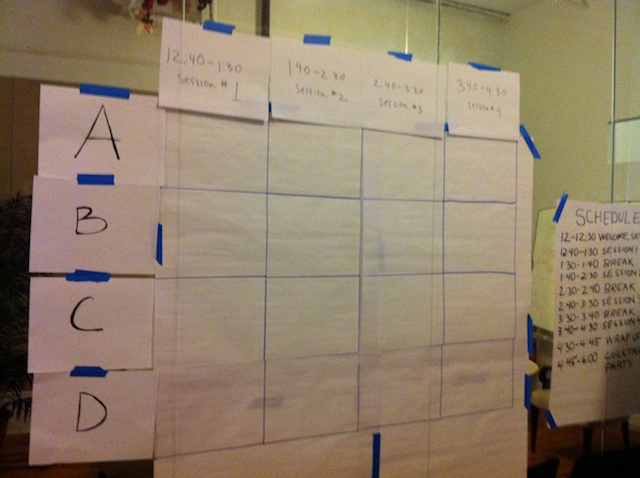
The day is broken out into a series of sessions and breaks:
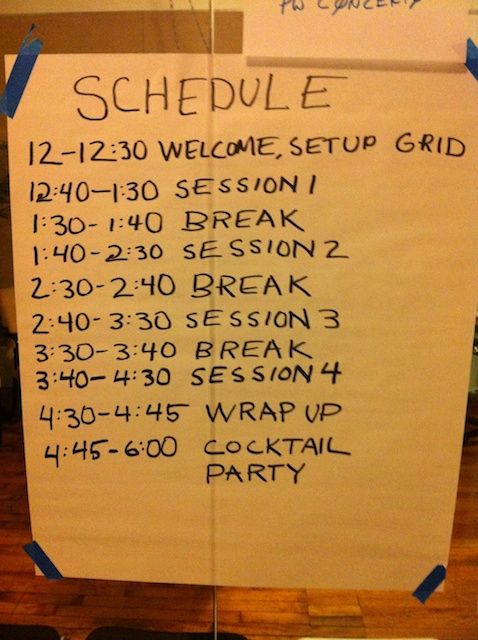
The attendees themselves suggest topics for discussions. Here, we go round the room (from left to right), and people raise their hands to pitch an idea for a session. Here Emily Williams suggests a session called “Who will keep the flame alive?” which I believe discussed the idea of who will promote the idea of reading and value of books in a world where bookstores and libraries are disappearing.
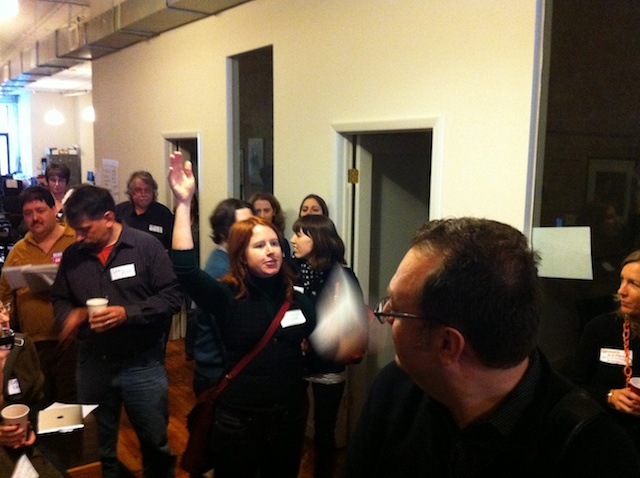
Kirsten McLean pitches a session that discussed key issues in publishing, cleverly titled “Magic Eight Ball.” You will notice that each session leader writes down their idea on a piece of paper.
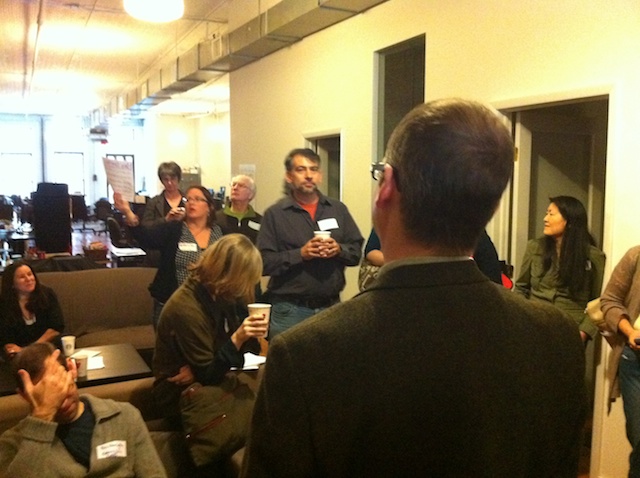
Bethanne Patrick suggests a session:
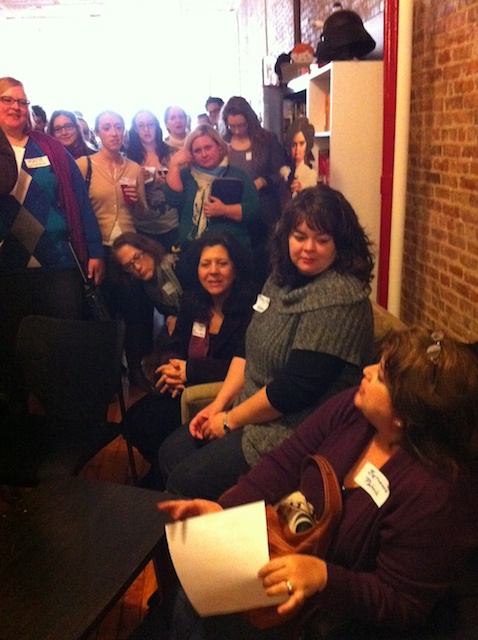
Chris Kubica suggests a session:
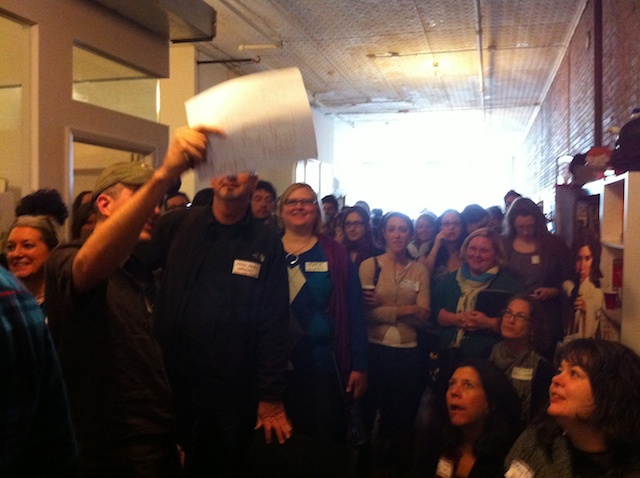
As these sessions are pitched, they are added to “the big board” – assigning them to time slots and room numbers:
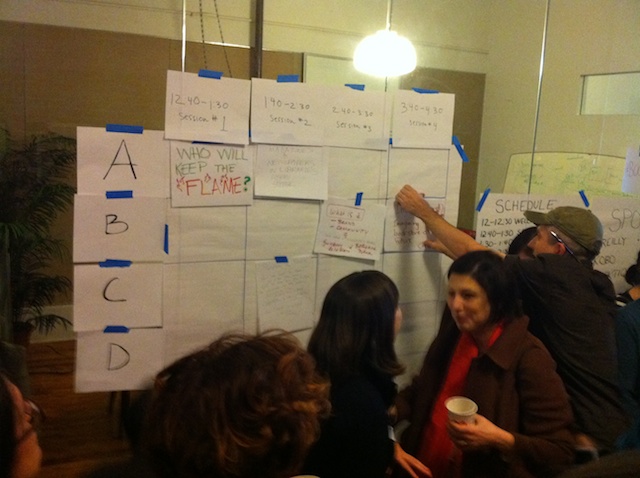
Another attendee pitching a session. It’s nice to star the day this way because it gets people used to speaking up so that 150 others can hear you:
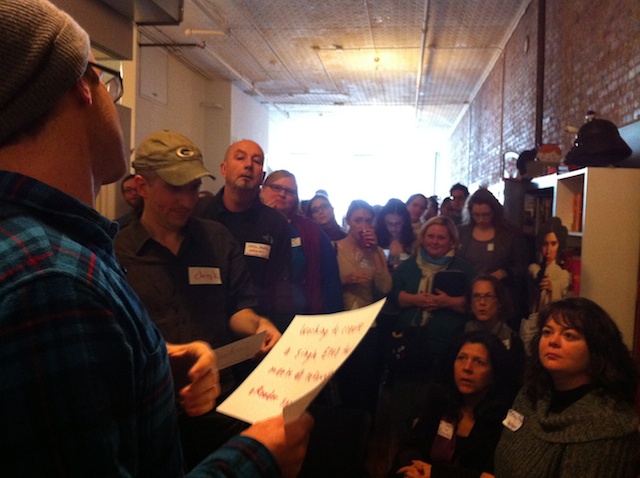
The session is added to the board:
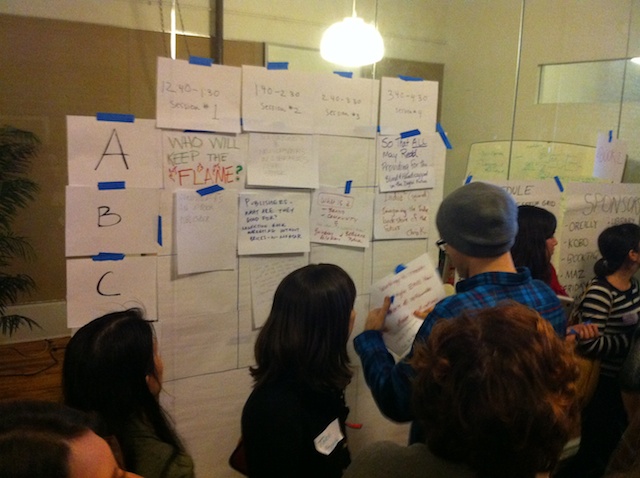
As the board fills up, another session is pitched:
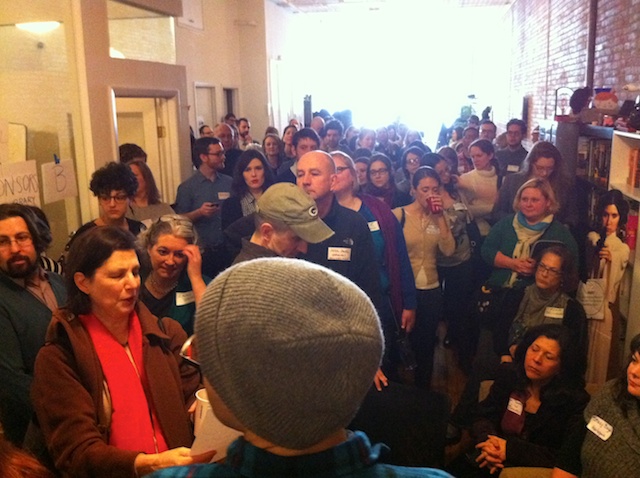
Everything about the day is inherently social. It’s a tight space, so you are forced into close quarters with others, which often encourages lots of interaction:
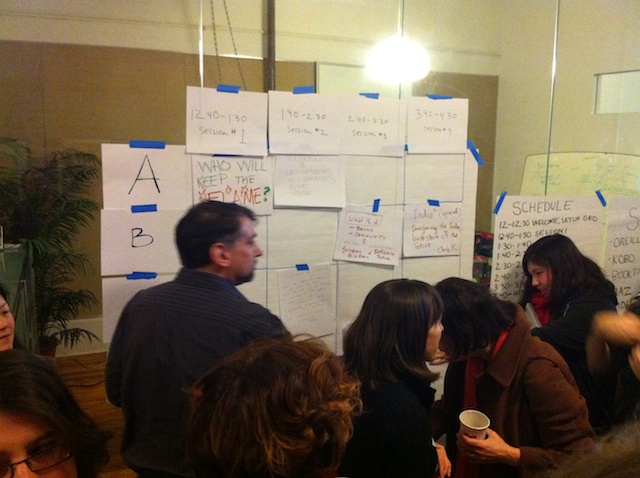
The session pitches continue:
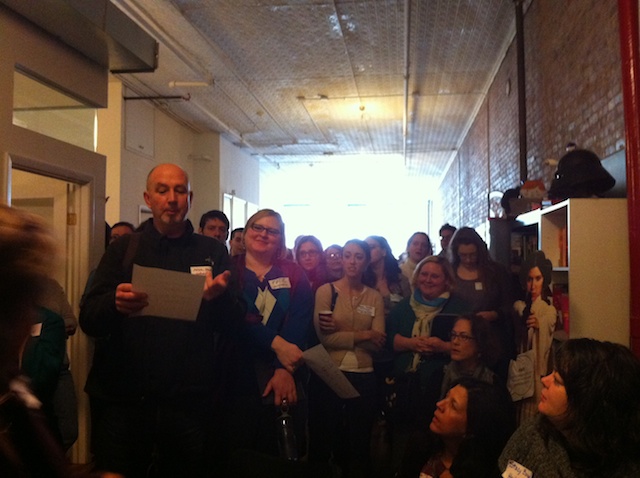
Katie Dunneback suggests a session:
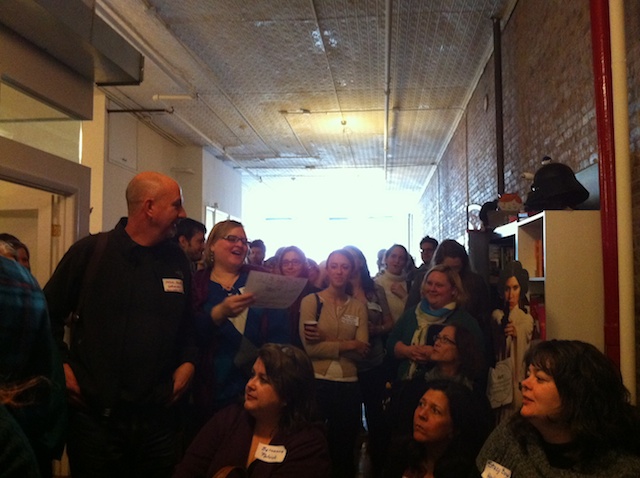
Once all of the ideas are shared and the board is filled up, people get to review the day, and choose which sessions they want to attend. Four sessions run at once, and there are four time slots throughout the day. Each session is 50 minutes long.
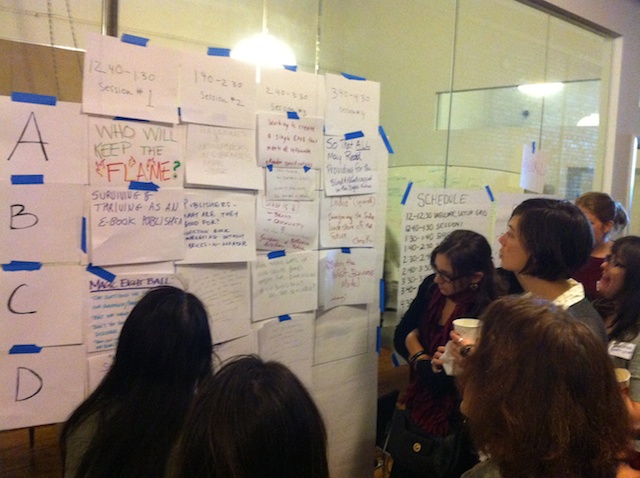
The event had quite a few sponsors (listed later in this post), who helped provide copious amounts of food and beverage:
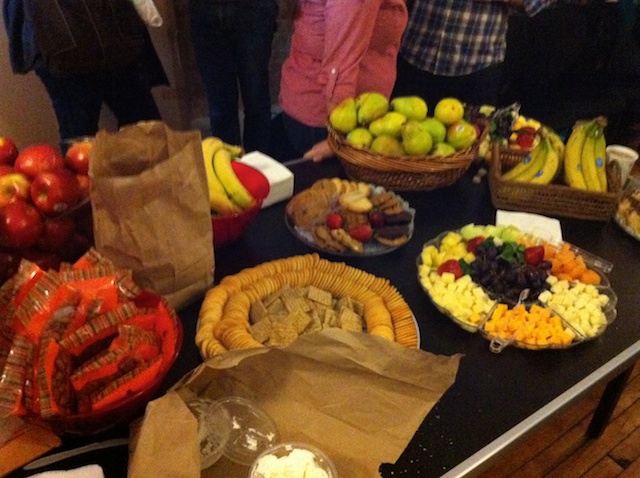
Here are two sessions in action (one in the very back, and the circle right up front.) As you can see, this is unlike most other conferences. This is “borrowed space,” and the organizers have to create distinct areas out of the existing offices.
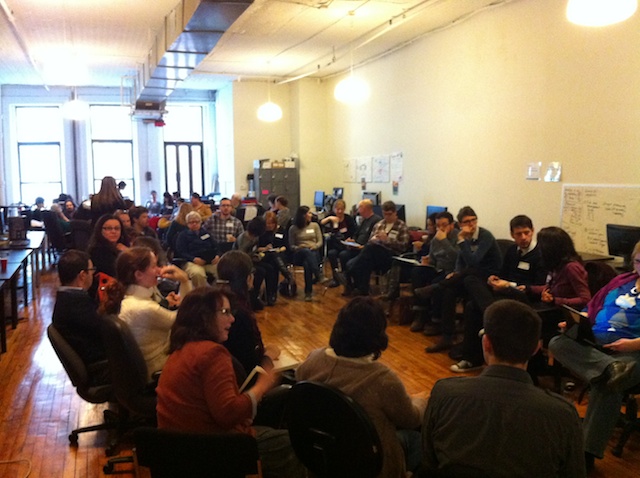
While there is a session leader, the idea is that every session is truly a discussion. While one person may be leading the session, their role is to keep things on track, and frame the conversation, not overwhelm it.
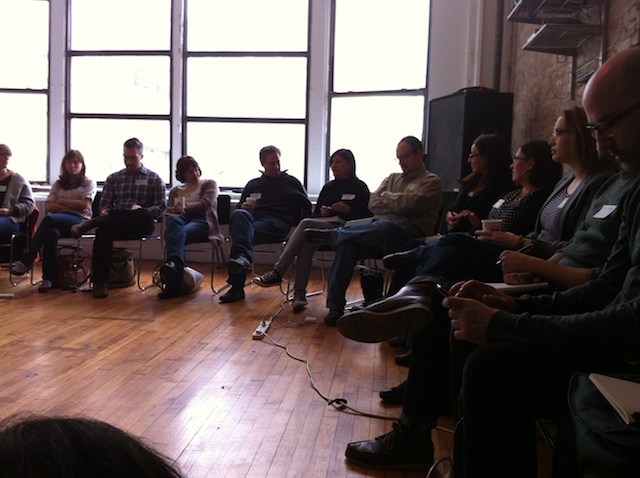
Much like regular camp, Book Camp does include sitting on the floor and chatting:
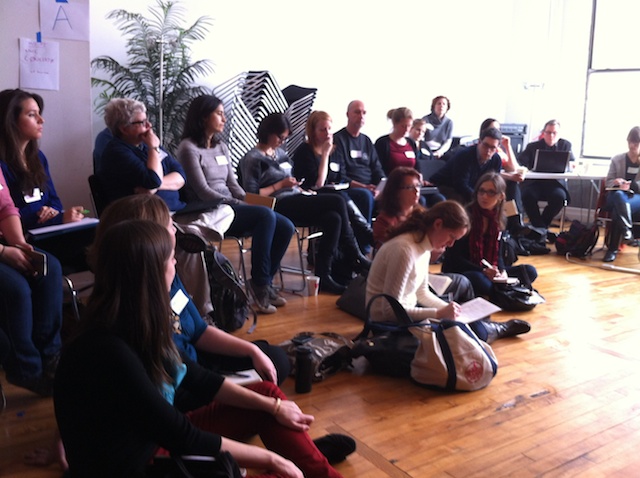
But like a more formal conference, there are loads of details organizers need to attend to. This is one that is often overlooked by larger conferences: ensuring there are power outlets for attendees to plug their laptops and phones into. Power strips were snaked around the sessions:
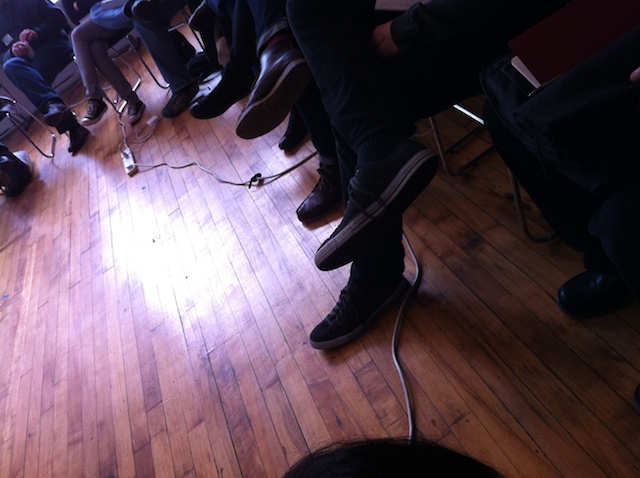
There was one regular room available for sessions as well:
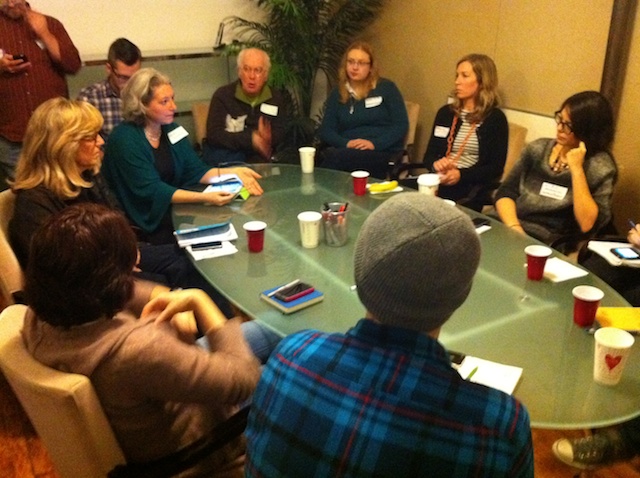
Because it is hard to gauge how many people will attend each session, it is not unusual for folks to be standing in some sessions:
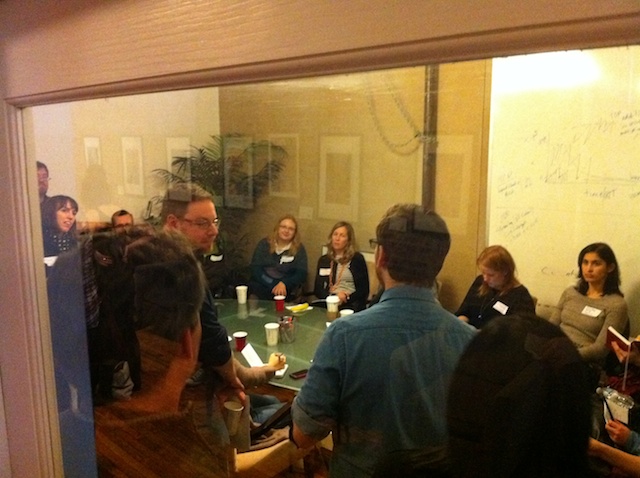
Another session:
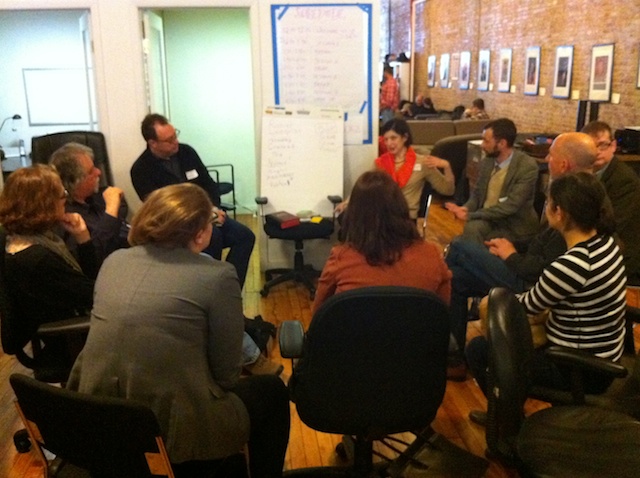
And yet another:
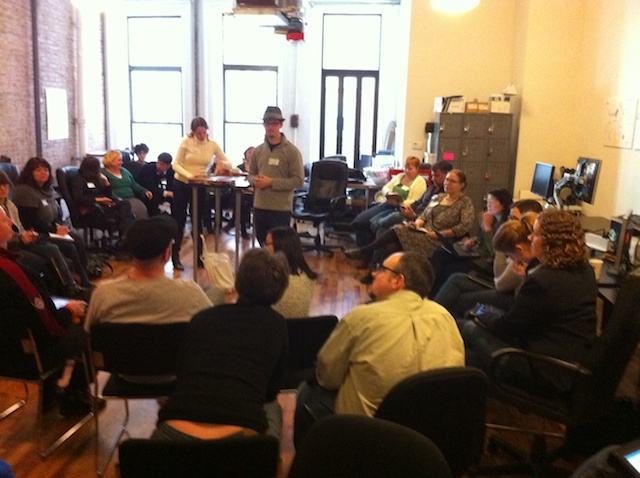
There is an incredible intimacy to an event like this. Since every attendee is helping to construct the value of each session, you can’t help but meet new people and feel truly a part of something:
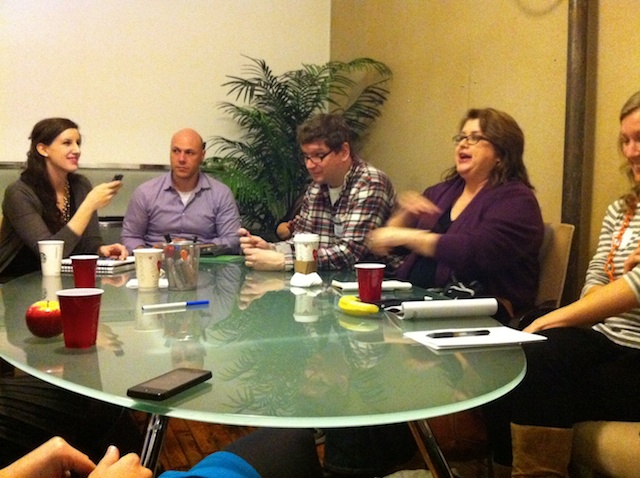
It always amazed me WHO was there as well. Everywhere you looked, there was an expert from somewhere in the publishing world or a passionate advocate for reading:
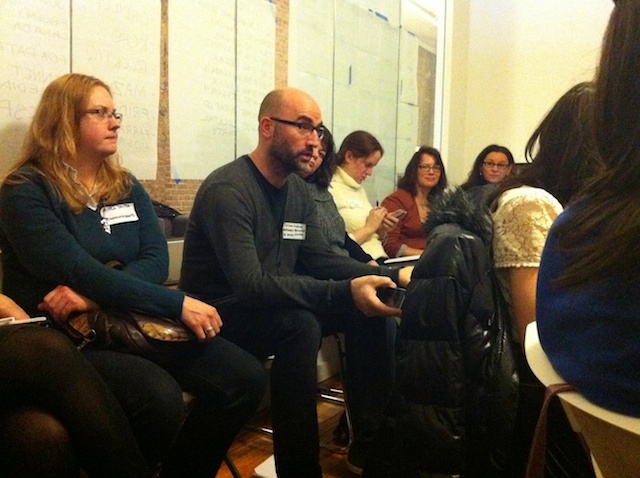
In the final session of the day, Guy LeCharles Gonzales lead a session on business models in publishing:
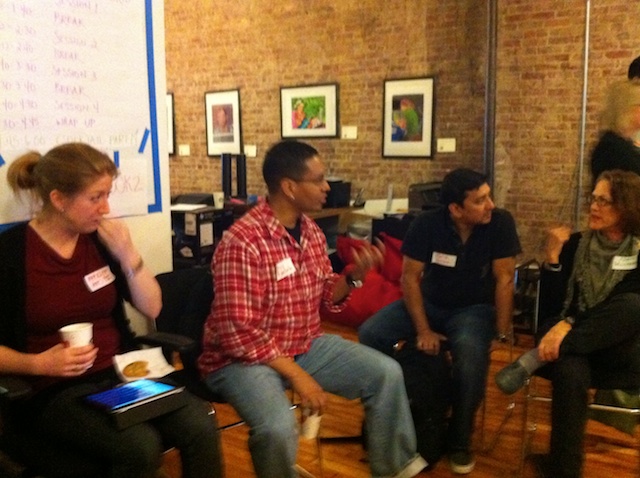
The day ends much as it began, with Ami standing on furniture, thanking everyone for their contributions:
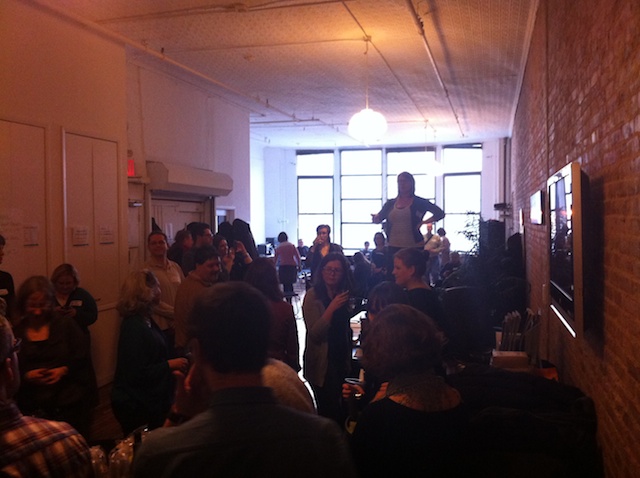
A cocktail hour ends Book Camp. There was a large crowd still chatting for more than an hour after the official sessions ended:
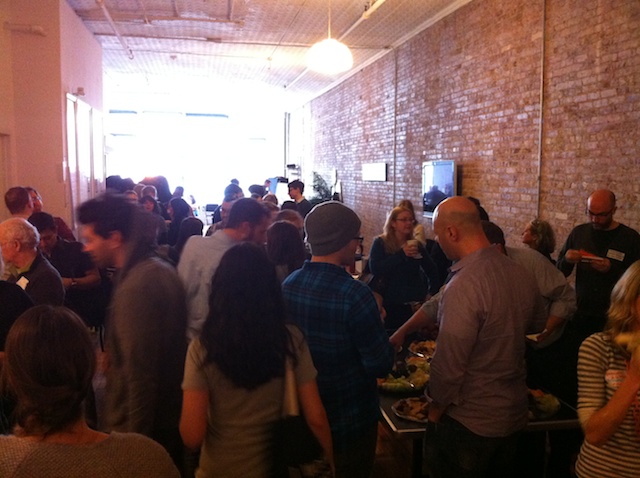
Wine, cheese, and fruit was served:
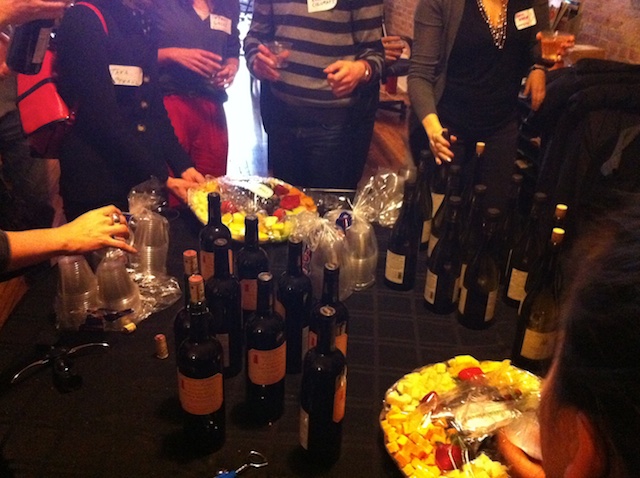
More informal conversations:
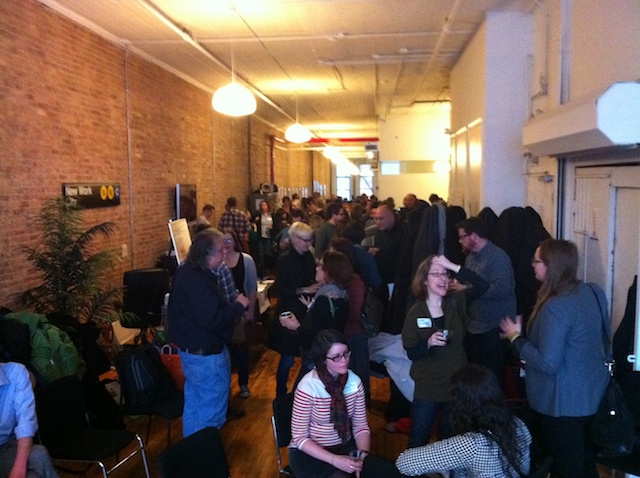
After the event ended, a group of volunteers and attendees helped clean up.
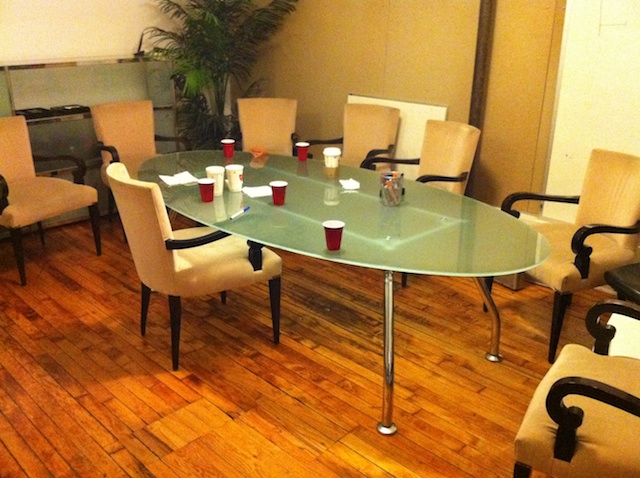
A sea of chairs that need to be put back in their place:
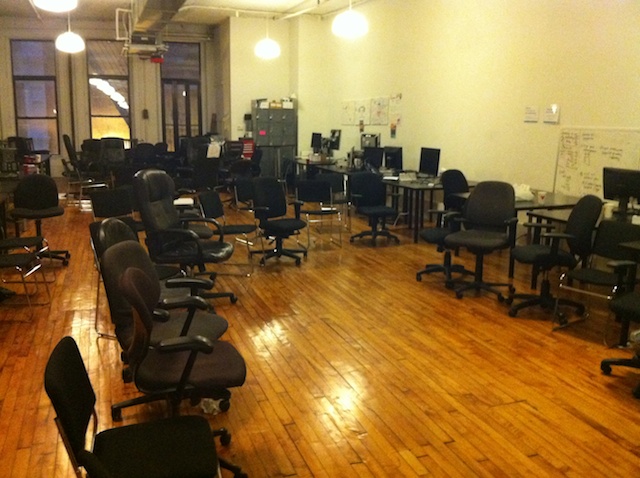
Here is a final look at “the big board,” filled with critical topics in publishing and reading:
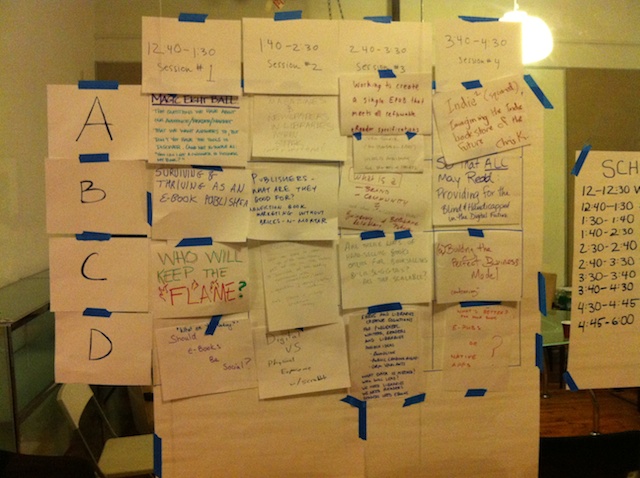
And a nice shout out to sponsors of the event, without whom this day would not have been possible:
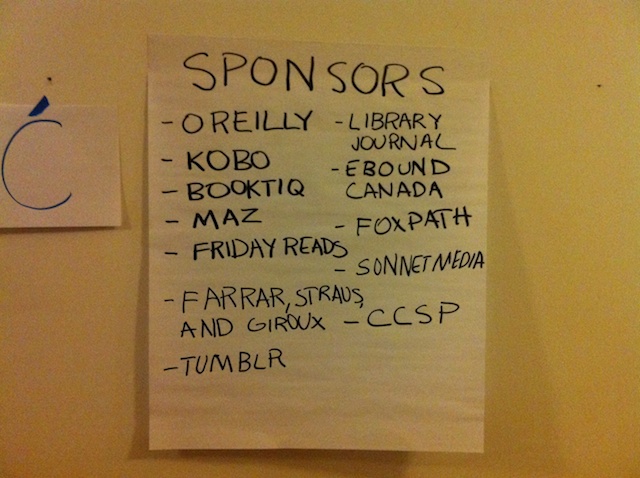
In all, an incredibly impressive event by any measure. Because every attendees is encouraged to participate, you get a bit more of a workshop feel to many sessions. It also underscores the idea that the audience is the expert – this is not an event structured around one speaking to many, but rather, the community speaking to each other.
Kudos to the organizers, attendees, volunteers and sponsors for an amazing event!
You can also see a recap of a Book Camp meetup from December 2010.
-Dan
@DanBlank







































